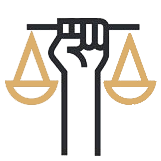Did you know that over 6 million car accidents occur every year in the U.S., yet less than 40% of insurance claimants say they received a fair payout from their insurance company? If you’ve been in a car accident, navigating insurance claims for car accidents can feel overwhelming—but with the right knowledge and strategies, you can significantly improve your outcome. This comprehensive guide is packed with expert tips, actionable steps, and essential secrets to tip the scales in your favor after an auto accident.
What You'll Learn About Insurance Claims for Car Accidents
- Key strategies to maximize your car accident insurance claim payout
- Step-by-step guidance on navigating the insurance company claims process
- Essential dos and don’ts when filing an insurance claim after a car accident
- Expert insights related to the department of insurance and insurance claim policies
Startling Facts: The Reality of Car Accident Insurance Claims
"Over 6 million car accidents occur annually in the U.S., yet less than 40% of insurance claimants report receiving a fair payout from their insurance company." – National Department of Insurance Statistics

Understanding Insurance Claims for Car Accidents
What Is an Insurance Claim for Car Accidents?
An insurance claim for car accidents is a formal request to your insurance company to provide compensation—whether for property damage, bodily injury, or other covered losses—after an incident involving your vehicle. When you file a claim, you’re triggering a process that determines who is at fault, what your insurance policy covers, and how much, if anything, the insurer will pay. Understanding when and how to file an insurance claim is critical; not every accident justifies a claim, especially when minor damages or costs are below your deductible. However, for significant collisions or injuries, the claims process is essential for recovering your losses and getting your vehicle repaired or replaced (sometimes at actual cash value, depending on your policy terms).
Filing an insurance claim can involve gathering documents (like the police report, accident report, and medical bills), communicating with your insurance agent, and sometimes working with the department of insurance to ensure your claim is handled fairly. Knowing the difference between first-party claims (with your own insurer) and third-party or party claims (with the other driver’s insurance company) will help set your expectations—and strengthen your position throughout the process.
Role of the Insurance Company in Car Accident Claims
Your insurance company acts as both a financial protector and a claims gatekeeper. When you file the claim, the insurer assigns an adjuster to investigate the incident, estimate repair or medical costs, and decide on a settlement offer. Insurance companies profit by minimizing payouts, so their adjusters scrutinize every detail—from your accident report to repair estimates. Adjusters will also determine if other parties are liable and might involve their own legal and claims specialists. They’ll check your automobile insurance policy, verify coverage limits, and compare repair costs from different body shops to control expenses.
In some situations, the department of insurance oversees insurance company practices, especially if disputes arise or if the insurer fails to process your claim promptly and fairly. Not all insurance companies are equal; some excel in customer service while others exploit policy loopholes to reduce settlements. It’s crucial to know your rights, persist in negotiations, and leverage consumer protection guidelines set by your state’s department of insurance to get the maximum benefit from the claims process.
Key Terminology: Automobile Insurance, Claims Process, Adjuster, and More
Understanding common car accident and insurance claim terminology helps demystify the claims process:
- Automobile Insurance: A contract that provides financial protection against physical damage, bodily injury, or liability from car accidents and auto incidents.
- Claims Process: The sequence of actions—from notification to payout—required to receive compensation after an accident.
- Insurance Adjuster: A representative who investigates claims and recommends payout amounts based on your policy and the accident details.
- Deductible: The amount you must pay out-of-pocket before your insurance kicks in.
- Appraisal Provision: A policy section that allows for an independent dispute resolution if you disagree with the insurer’s damage estimate.
- Property Damage and Bodily Injury: Core coverage types within auto policies, covering vehicle damage and medical payments from accidents.
- Rental Car Coverage: Pays for a rental vehicle while your car is being repaired after an accident.
Becoming fluent in these terms means fewer surprises and smoother interactions with the insurance company, repair shop, and department of insurance.
Step-By-Step Guide: The Car Accident Insurance Claims Process
-
Immediate actions at the car accident scene: After a collision, ensure everyone’s safety, call emergency services if there are injuries, and move vehicles out of traffic if possible. Gather all essential info for your insurance company: driver’s licenses, insurance information, photos of vehicle damage, and a police report. Don’t forget to check with on-scene tow truck drivers or bystanders if you need additional support.

- Notifying your insurance company promptly: Contact your insurance agent as soon as possible—many insurers also let you file a claim using a mobile app. Early communication prevents delays when repairing your vehicle or getting a rental car, and allows the claims process to start immediately.
- How to file a claim and file the claim correctly: Provide all requested documents: a copy of the police report, your automobile insurance policy number, accident details, and medical records if applicable. Double-check your claim form for mistakes—errors can slow down or jeopardize your claim.
- Coordinating with the department of insurance if needed: If complications arise, or if you suspect unfair practices, reach out to your state’s department of insurance. They can intervene if the insurance company mishandles your claim, delays payment, or violates consumer protection rules.
- Selecting a repair shop and estimating damage: You’re allowed to choose your own repair shop or body shop—don’t let the insurer pressure you into their “preferred” providers if you’re uncomfortable. Get detailed repair shop estimates and ask if original equipment manufacturer (OEM) parts are being used. Thorough estimates give you the leverage to negotiate a fair payout.
Table: Insurance Claims for Car Accidents—Key Steps and Required Documents
| Step | Description | Required Documentation |
|---|---|---|
| Report Incident | Contact insurance company | Police report, accident details |
| File Claim | Initiate insurance claim process | Claim forms, vehicle information |
| Assessment | Inspection by adjuster/repair shop | Damage photos, repair estimates |
| Resolution | Payout or repairs approved | Settlement offer, payment details |
Insurance Company Tactics: What to Expect and How to Respond
- Common negotiation strategies by insurance companies
- Department of insurance guidelines to protect policyholders
- Repair shop relationships and their influence on your payout
"Insurance companies often aim to minimize payouts—knowing their tactics can empower your negotiation." – Claims Process Expert

Insurance companies deploy various tactics to reduce how much they pay on your insurance claims for car accidents. You may encounter delays (“We’re still reviewing your claim”), low initial settlement offers, or pressure to use their network repair shop or body shop, which may prioritize cost-cutting over quality repairs. Don’t be rushed or bullied—compare multiple estimates, demand the adjuster details their calculation, and push back if the settlement does not reflect actual repair costs or the actual cash value.
State department of insurance agencies create guidelines to protect you from bad faith insurance company behavior. If you suspect the insurer is not acting fairly—such as unreasonable claim denials, withholding payment, or misrepresenting your policy—file a complaint with the department of insurance. Repair shop partnerships can influence the process; insurers sometimes steer claimants to shops with lower prices, affecting the quality of your auto repair or replacement parts. Always scrutinize repair estimates, request OEM parts for your vehicle if possible, and maintain documentation to support your position. Knowing and using the rules to your favor keeps the insurance company in check and helps maximize your payout.
What Not to Say to an Insurance Claim Adjuster
- Statements to avoid during the claims process
- How your words may affect your insurance claim outcome
- Example scenarios and recommended responses
When speaking to an insurance claim adjuster about your car accident, your words matter. Avoid admitting fault (“I’m sorry, it was my fault”), speculating about injuries (“I feel fine”), or underestimating damage (“It’s not that bad”). These statements could be used by the insurance company to minimize or deny your claim or to dispute your account later in the claims process. Instead, stick to the facts, refer to the official accident report or police report, and don’t volunteer unnecessary information. If you’re unsure about a question, say, “I’m not certain, I’d like to review my information and get back to you.”
Example scenario: If the adjuster asks if the car accident was partly your fault, do not speculate—simply state, “I provided all relevant information in my report; I’ll defer to the accident report findings.” By maintaining consistency and not over-sharing, you protect your interests as the claims process unfolds. Remember, anything you say can impact both the outcome and the actual cash you might receive from a settlement.
Visual walkthrough of the claims process and dealing with the insurance company
Is It Worth It to File a Car Insurance Claim?
Weighing the pros and cons for various car accident scenarios
Deciding whether to proceed with insurance claims for car accidents depends on your individual circumstances. If the collision damage is minor, or repair costs fall below your deductible, filing an insurance claim might not be necessary—handling minor auto repair costs yourself can prevent increases to your automobile insurance rates. On the other hand, for accidents involving injury, significant property damage, or liability disputes, filing a claim is the safest path for reimbursement—and legal protection.
Weigh the cost of repairs against the potential impact on your insurance policy premiums. Repeated claims can lead to higher future insurance rates or even non-renewal. Minor “fender-benders” with no injuries and costs lower than your deductible are often better handled without a claim, especially if there’s no other party involved. However, for major incidents or liability issues, an official claim (supported by the police report and detailed documentation) is essential to protect your rights.
Department of insurance considerations and costs
- When minor damages may not require filing a claim
- Impacts on future automobile insurance rates

Your state’s department of insurance can be a valuable resource if you’re unsure whether to file. They provide impartial guidance about the claims process, your policy rights, and what to expect for property damage or bodily injury payouts. They also explain how filing (or not filing) a claim can affect your future insurance costs. If the accident involved another party, always file an official report and work with the insurance company to protect yourself in case issues arise later. Even for minor accidents, collecting evidence and consulting the department of insurance before proceeding can save you time, money, and headaches down the road.
Insurance Claims for Car Accidents: Maximizing Your Payout
-
Documenting everything for your insurance claim: Keep thorough records—including photos of the scene and vehicle, medical bills, auto repair estimates, and every communication with the insurance company and repair shop.

- Getting multiple repair shop estimates: Don’t accept the first auto repair quote or the insurer’s suggested body shop. Multiple estimates help you negotiate for a higher, fairer settlement.
- Leveraging laws via the department of insurance: Familiarize yourself with local department of insurance regulations that protect your rights and dictate how insurance companies must process and pay out claims.
- Negotiating assertively with the insurance company: Be persistent, highlight discrepancies in their repair cost estimates, insist on original equipment (OEM) parts, and reject unfair settlement offers until you achieve a satisfactory outcome.
"Persistence and documentation are your best allies in the claims process." – Auto Insurance Specialist
Dealing with Fault: How Insurance Claims Work When It’s Not Your Fault
Subrogation and the department of insurance’s role
When you’re not at fault in a car accident, your insurance company may pay for your repairs (subject to your policy terms) and then pursue reimbursement—known as subrogation—from the at-fault driver’s insurer. The department of insurance often mediates disputes between companies or step in if your payout is delayed during the subrogation process. When working with your insurer, check if they’ll waive your deductible once they recover costs. The insurance company must still process your claim per established timelines; if they delay, the department of insurance can intervene on your behalf.
Keep all documentation, from police reports to correspondence from both companies. This not only expedites your claim but also ensures you aren’t left covering another party’s liability. Don’t hesitate to ask the department of insurance for advice if the process becomes lengthy or complicated—their role is to protect consumers in precisely these circumstances.
Working with the other driver's insurance company

If you are filing a third-party claim directly with the other driver’s insurance company, expect them to scrutinize every detail. Respond quickly to requests for documents, stick to your accident account, and avoid making speculative statements about injuries or fault. Know your rights under your state’s insurance regulations and seek out independent repair estimates, rather than accepting the insurer’s preferred provider by default. Should you reach an impasse, your own insurance company and the department of insurance can sometimes assist in facilitating communication or resolving disputes.
- Timelines to expect in the claims process: Most states have deadlines for insurance companies to acknowledge, process, and settle claims—usually within 30–60 days. Demand written updates if your payment or decision is delayed.
- Common obstacles and how to overcome them: Sometimes, issues arise—such as disputed fault, lowball offers, or delay tactics. Overcome these by insisting on clear documentation, using the appraisal provision, and consulting external experts or the department of insurance if needed.
How to communicate effectively with adjusters and the repair shop during your insurance claim
Frequently Asked Questions: Insurance Claims for Car Accidents
How do insurance claims work for car accidents?
After a car accident, you file a claim with your insurance company or the at-fault party’s insurer. The insurer assigns an adjuster to investigate, who reviews documentation like police reports, repair estimates from the body shop, and medical bills. The claims process includes an assessment of damages, negotiation, and a settlement. It’s important to know your automobile insurance policy terms, communicate promptly, and keep records to ensure a smooth experience and fair compensation.
What not to say to an insurance claim adjuster?
Avoid making statements that admit fault, downplay injuries, or speculate on accident details (“I’m not sure what happened” or “It was my fault”). Don’t guess at repair costs or medical needs; instead, refer to official reports or let your repair shop and physician provide details. Even innocent remarks can be interpreted against you and may impact the outcome or the actual cash you receive from your claim. Always keep your answers factual and concise.
How does insurance work when it's not your fault?
If another driver caused your accident, you can file a claim with their insurance company (a third-party or party claim), or file with your own insurer and let them recover costs through subrogation. Either way, supply thorough documentation and keep in contact with both insurers to ensure your claim is handled efficiently. The department of insurance can step in if you face delays or disputes in resolving your claim or getting reimbursed for medical payments or property damage.
Is it worth it to file a car insurance claim?
Filing an insurance claim is worthwhile for significant property damage, bodily injury, or when another party is at fault. For minor incidents with costs below your deductible, or if there’s no other vehicle involved, filing may not be the best move—consider the potential for increased insurance policy premiums or other impacts on your rates. Always weigh the repair costs against the potential implications for your future coverage and costs.
Key Takeaways: Insurance Claims for Car Accidents
- Always document every aspect of your car accident and insurance claim.
- Consult the department of insurance if you encounter difficulties.
- Understanding insurance company tactics gives you the upper hand.
Learn More About Insurance Claims for Car Accidents
- For expert legal guidance and practical tips, visit pugetsoundinjurylaw.com/
Navigating the complexities of insurance claims after a car accident can be daunting. To further enhance your understanding and maximize your payout, consider exploring the following resources:
-
“How To File A Car Insurance Claim – Forbes Advisor”: This comprehensive guide outlines the essential steps in the insurance claim process, common reasons for claim denials, and tips to ensure a smooth experience. It emphasizes the importance of timely reporting and accurate documentation to avoid potential pitfalls. (forbes.com)
-
“Insurance Claim Process for Car Accidents”: This article provides a detailed walkthrough of the insurance claim process, from seeking medical care to repairing your vehicle. It highlights the significance of understanding your policy coverage and the role of personal injury protection (PIP) in certain states. (caranddriver.com)
By delving into these resources, you’ll gain valuable insights into the intricacies of car accident insurance claims, empowering you to navigate the process more effectively and secure the compensation you deserve.
 Add Row
Add Row  Add
Add 




Write A Comment